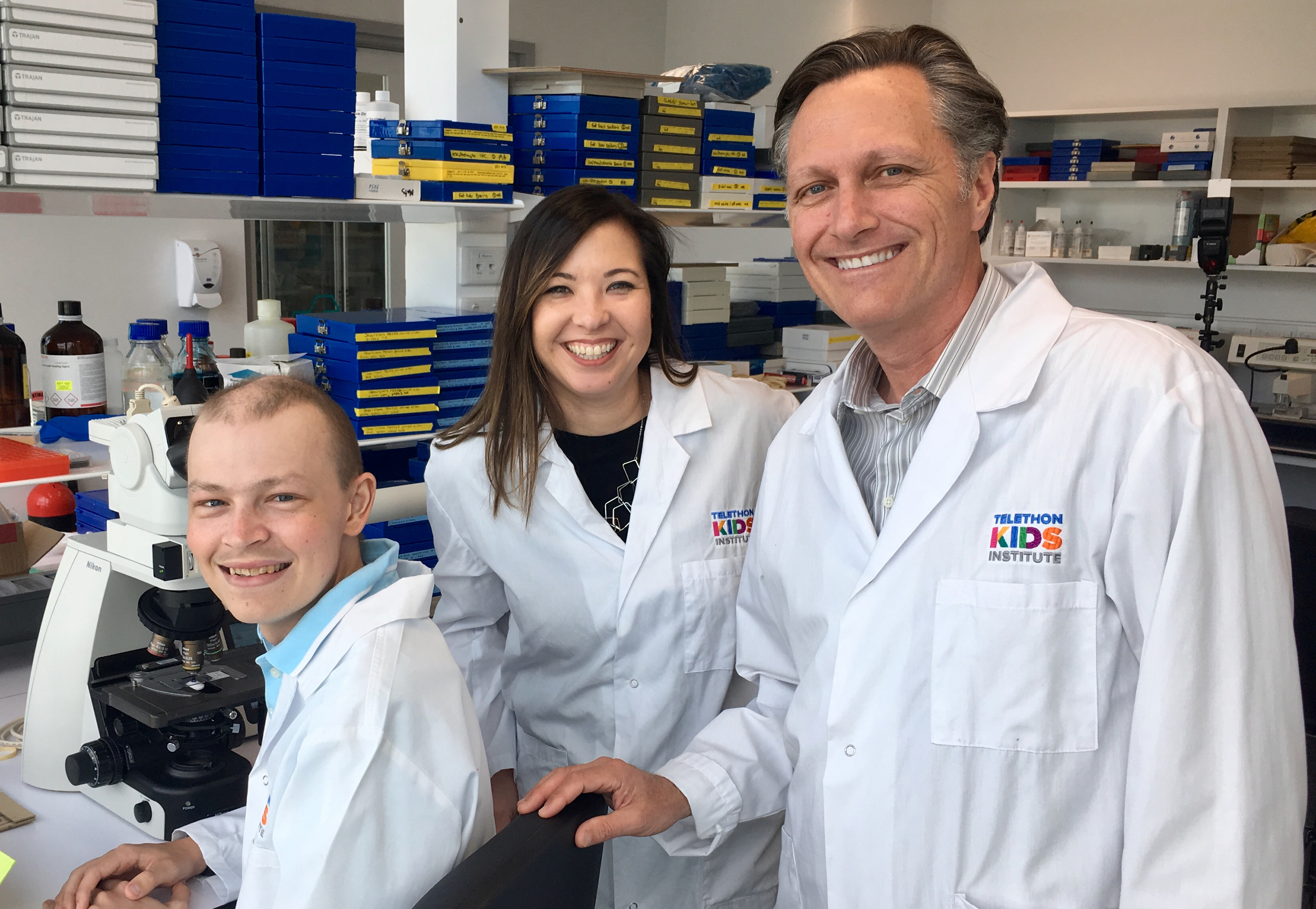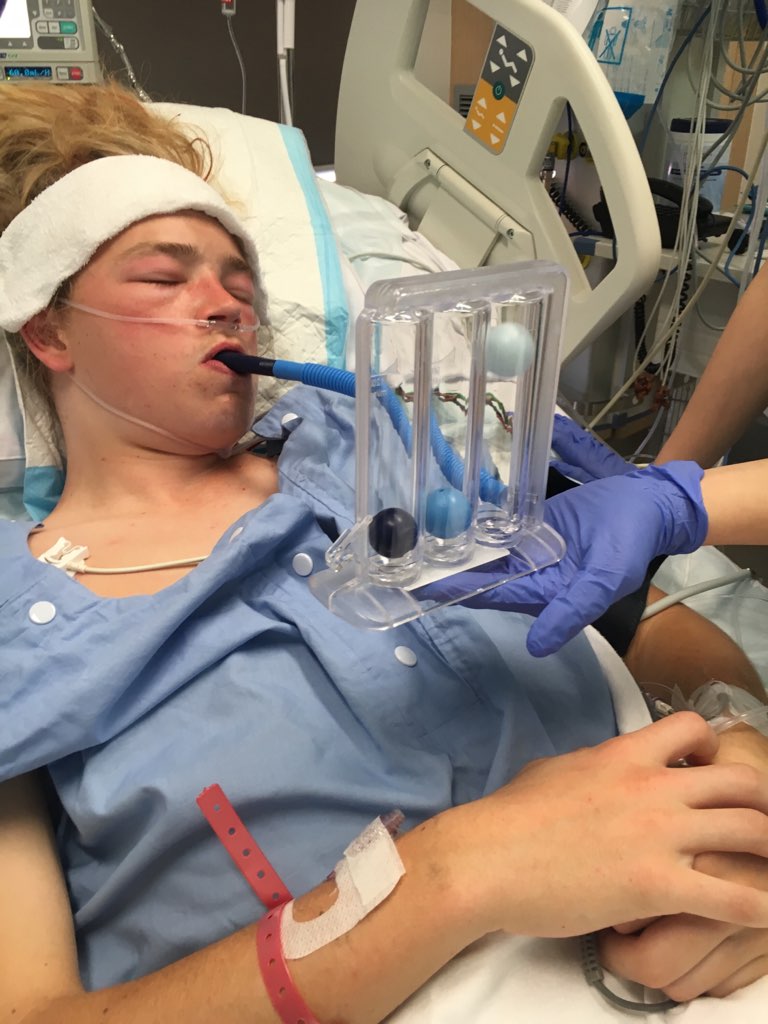 18-year-old Baxter Hutchinson with cancer researcher Dr Raelene Endersby and The Kids Director Professor Jonathan Carapetis
18-year-old Baxter Hutchinson with cancer researcher Dr Raelene Endersby and The Kids Director Professor Jonathan Carapetis
Meet Baxter Hutchinson. He was diagnosed with two life-threatening brain tumours a year ago when he was 17. Since then he has undergone surgery, radiotherapy and chemotherapy and has only just finished treatment. He credits being on a clinical trial with saving his life – and is now an advocate for medical research.
We spoke to Baxter about his journey, why he believes research is so important and what his hopes are for the future.
Tell us about your diagnosis
“I was diagnosed with two medulloblastoma brain tumours on the 15th of September 2018. One of the two tumours was inoperable.”
What went through your mind when your were first diagnosed?
“The first thing that went through my mind was the fear of the unknown. As I had never heard of brain cancer and had no idea as to what was involved in the treatment process.”
Could you explain the surgery and treatment you went under?
“I had brain surgery on one of my two brain tumours followed by 8 weeks (approximately 40 rounds) of radiotherapy targeting both brain and spine and 7 rounds of chemotherapy from the clinical trial.”
What was the hardest thing about your treatment journey?
“The hardest thing about my treatment was post surgery In intensive care. I came out unable to eat, walk, talk or see and did not sleep for 11 days.”
Could you tell us about the clinical trial you were on (called clinical trial SJMB12)?
“The clinical trial I was on was specific to medulloblastoma brain tumours. It was run by St Jude’s Hospital in America (in collaboration with the Perth Children’s Hospital and researchers from The Kids Research Institute Australia) and I am incredibly lucky to have access to it as it was only available in America and right here in the Perth Children’s Hospital.”
Why was it important to your journey to be on the clinical trial?
“The clinical trial was highly important in my journey due to it being specific to medulloblastoma. As the treatment not only managed to reduce the size of my tumour but it completely eliminated it, which is quite rare in brain cancer patients. The trial basically saved my life.”
How important is research and the work The Kids is doing?
“The research being done at The Kids Research Institute Australia is highly important as we are one of the few places in the world that have the facilities to do so. And without research the survival rate of brain cancer will continue to be low.”
How important is it that the research and clinical trials are done here in Perth?
“Having the access to clinical trials in WA is vital to improve the survival rate in brain cancer. As some patients like myself are not fit to fly so therefore must have a regular chemotherapy treatment that isn’t specific to the type of brain tumour they are diagnosed with.”
What’s your ultimate hope for cancer research here in WA?
“My ultimate hope is that we can find a cure for brain cancer right here in WA and that it’s available to all diagnosed patients not just in WA, but around the world.”
What are your aspirations for the future now that you have finished treatment?
“Now that I have finished treatment, my aspirations are to continue to help push towards finding a cure for brain cancer and to play for the Pararoos soccer team in the 2023 World Cup.”

Baxter after life-saving surgery to remove one of his brain tumours
